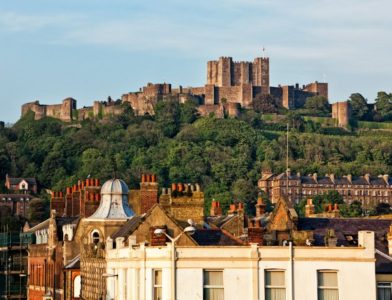You want to enjoy your motorhome confident in the knowledge that it is safe to use and securely out of the hands of those up to no good. Let’s take a closer look at how you might do just that.
Fire
On occasion, your motorhome will be everything that your second home needs to be – and that means cooking, heating, and using a fridge. Each one of these appliances is likely to be powered by LPG gas. You are also likely to have lighting and other electrical devices connected to the onboard battery of your motorhome.
Both gas and electricity, of course, are potential sources of fire, so always ensure that supplies are disconnected when you leave your motorhome for any length of time and treat all appliances fuelled by them with care and caution.
As essential fire safety measures, smoke alarms, CO2 detectors, and fire extinguishers may also give you further peace of mind.
Although manufacturers are required to use fire-retardant materials in the construction of your motorhome, exercise care when parking up at your campsite and ensure you maintain a minimum of six metres between vehicles. That is the minimum separation recommended by the Caravan and Motorhome Club, which also suggests you keep at least three metres between your own and a neighbour’s car or awning.
Servicing
Regular servicing of any vehicle is important – to keep it working just as it should but also to help preserve its resale value. In the case of a motorhome, regular servicing is even more important – both from its mechanical and roadworthiness status and to all those interior aspects that make it a home from home.
The areas covered by those separate aspects of mechanical and habitation servicing are discussed in greater detail in an article by the Camping and Caravanning Club.
Here are Derby Motorhomes, we have expertise in both mechanical and habitation servicing – and as we have recommended in a separate blog, you might want the comfort and reassurance of knowing that servicing is done by a member of the Approved Workshop Scheme (AWS) set up by the National Caravan Council, the Camping and Caravanning Club, and the Caravan and Motorhome Club.
Security
Keeping your motorhome secure is principally a question of keeping two main threats at bay:
- someone stealing and making off with the vehicle; and
- the deterrence of intruders who are bent on causing damage or stealing any valuables you have inside.
The principal defence against the theft of the vehicle is an immobilisation device.
Practically every new motorhome manufactured these days comes already fitted with an immobilisation device that meets Thatcham Category 2 standards.
These devices work by cutting off the fuel system, starter motor, ignition, or a combination of all three when someone tries to start the engine without a specially coded key – the ignition key or fob (a touch key) for your particular motorhome. Without the unique code, the engine cannot be started, and a dual immobilisation circuit prevents the vehicle from being “hot-wired”.
Additional ways of immobilising your motorhome are described by the Camping and Caravanning Club. Some of these have the advantage of providing either a visual or audible deterrent – the sight of wheel clamps, for example, or the audible warning made when a lock between the gear shift and handbrake is disturbed.
To help trace your motorhome if it has been stolen, a tracking device may help by providing a 24/7 GPS locating signal. You might want to browse the latest wide range of devices supplied by one of the UK’s leading specialists, Tracker.
The simplest and most cost-effective way of keeping unwanted intruders out of your motorhome, of course, is to ensure that you lock all doors and windows whenever you leave the vehicle unattended. (Typically, of course, this is also going to be one of the fundamental conditions of your motorhome insurance policy).
Extra security might be provided by intruder alarms or motion detectors, which also warn you when someone may have broken into your motorhome.
Finally, it is worth remembering that the more secure you make your motorhome, the better your motor insurer is going to like it – and may even offer a discount on your insurance premiums as a result if you provide additional security.




